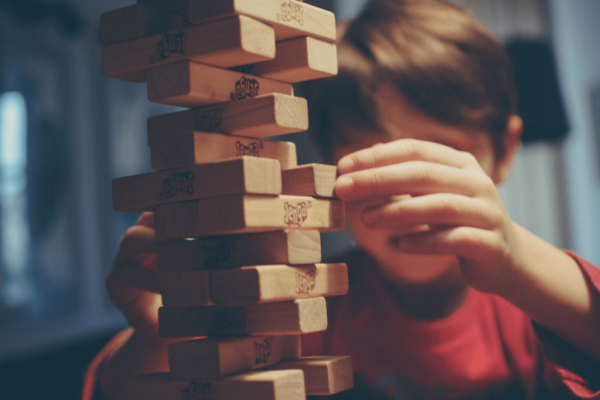How to Support Good Emotional Health in Children with Learning Disabilities

That’s why schools have started to bring in support. They usually also have specialists in both special education and hearing and language. But even with all these steps forward, we are still neglecting a fundamental aspect.
That aspect is the emotional health of children with learning disabilities. So now the question is: what can you do to support them and make sure they don’t feel stigmatized?
“Tell me and I forget. Teach me and I remember. Involve me and I learn.”
-Benjamin Franklin-
What kinds of things do children with learning disabilities feel?
It’s very common for children with learning disabilities to experience emotional discomfort because of their disabilities. These feelings can range from frustration and sadness to anxiety. Of course you can’t forget that those emotional problems occur in all children.
But how can parents tell if their children are experiencing that discomfort? There are a lot of warning signs you can look out for. It’s always possible that the emotions we just mentioned will show up, especially in school-related situations. They might express them in different ways: crying, worrying, headaches, stomach aches, and acting out, for example.
“Learning too soon our limitations, we never learn our powers.”
-Mignon McLaughlin-

Having learning disabilities doesn’t mean being less intelligent
Those feelings we mentioned can have a lot of different causes. One of them is that many times children with learning disabilities think they’re “dumber” than other children. It’s extremely important for parents to help them work through those thoughts, because they’re not true.
On one hand, parents need to explain (clearly and at the right level for their child) what learning disabilities are. Their child should come away from it with a clear understanding that it has nothing to do with how intelligent they are.
Parents also need to send the message that their learning disabilities don’t make them any less valuable. The people around them aren’t going to love them any less because of it.
This last part is really important. If children see their parents not taking the diagnosis well, they’ll feel like there’s something wrong with them. Parents have to take control and always have a positive attitude with their children.

Am I different because I have learning disabilities?
Once you get older, you start to understand that everyone is the way they are. In psychology we call this concept “individual differences.” But when you’re younger, all you want is to be just like the other kids. Or at least, if you are different, you don’t want it to be a bad thing. That’s why it’s so important to step in and help your children understand the roots and the impact of this thing they feel makes them different.
If you want to help them here, you have to make sure they get attention when they’re right, too. It shouldn’t just happen when they make mistakes because of their learning disabilities.
Because no matter how good your intentions are, it doesn’t help to focus only on their mistakes. Hence the importance of making an effort to give them positive reinforcement when they do something right.
Lastly, figure out if your child’s support system and customized curriculum is working for them. There might be a need to readjust those things because of any emotional and social changes. In that case, parents and teachers will need to work together to give the child the absolute best.
“I’ve learned that people will forget what you said, people will forget what you did, but people will never forget how you made them feel.”
-Maya Angelou-

All this effort is wearing me out: overburdening children with learning disabilities
Don’t forget that children with learning disabilities usually have to spend more time and effort on their homework. All this extra concentration might make them frustrated and angry, so it’s important for parents to help them work through it.
It can also be very motivating and productive for them to work with smaller, easier to reach objectives. That way they’ll feel like they’re moving forward, instead of looking up at an impossibly steep mountain. This simple step is absolutely fundamental.
Before we go, we want to mention one more thing that will have a big impact on the emotional well-being of children with learning disabilities: finding something they’re good at. Some activity or sport that they enjoy, something that makes them feel fulfilled. Having learning disabilities can affect children emotionally, but you have the power to help them feel better about themselves.
Images courtesy of Ben White, Michal Parzuchowski, and Element 5 Digital.
This text is provided for informational purposes only and does not replace consultation with a professional. If in doubt, consult your specialist.








